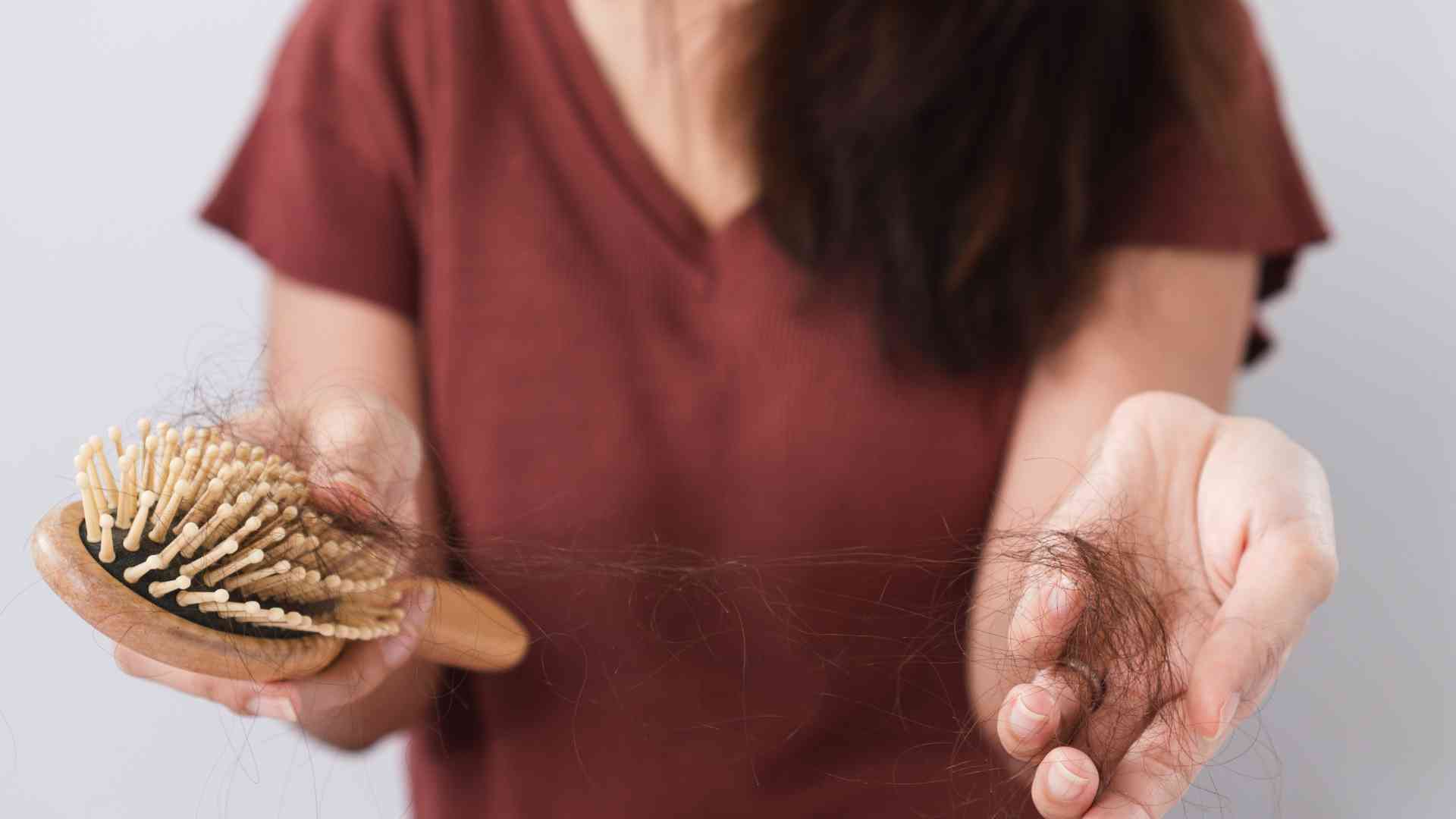Hair loss is a widespread concern that can profoundly impact one’s self-image and emotional well-being. A lesser-known aspect of hair loss involves its connection with autoimmune disorders, where the body’s immune system mistakenly attacks hair follicles. This intricate interplay between hair loss and autoimmune disorders holds significant importance for individuals grappling with hair loss.
Understanding this link can provide crucial insights into potential underlying causes and effective treatment approaches. This article aims to delve into the connection between hair loss and autoimmune disorders comprehensively. It will explore the various types of hair loss, elucidate the mechanisms of autoimmune reactions on hair follicles, discuss specific disorders like alopecia areata, provide diagnostic and treatment strategies, and offer guidance on coping and embracing a healthier lifestyle.
By unraveling this complex relationship, individuals can gain a deeper comprehension of their condition, empowering them to make informed choices and embark on a journey toward regaining their confidence and well-being.
Autoimmune Disorders and the Immune System
The immune system is the body’s intricate defense mechanism designed to safeguard against harmful invaders, such as bacteria, viruses, and other foreign substances. It comprises a network of cells, tissues, and organs that work harmoniously to recognize and eliminate these potential threats, ensuring the body’s health and functioning.
Autoimmune disorders occur when this remarkable defense system malfunctions and mistakenly turns against the body’s own cells and tissues. Instead of distinguishing between self and non-self, the immune system becomes dysregulated and launches an immune response against its own components. This misguided attack leads to inflammation, tissue damage, and a range of health issues.
Diversity and Effects of Autoimmune Disorders:
The diversity of autoimmune disorders is striking, with a multitude of conditions affecting various body systems. Examples include rheumatoid arthritis, where the immune system targets joints, and type 1 diabetes, where insulin-producing cells are attacked. In the context of hair loss, alopecia areata is a notable example, where the immune system targets hair follicles, resulting in patchy hair loss. This heterogeneity arises from the immune system’s complexity and the intricate ways in which it interacts with different cell types and tissues.
Understanding these disorders’ multifaceted nature is essential, as it underscores the need for tailored approaches to diagnosis, treatment, and management. By grasping the basics of the immune system’s function and its potential to go awry in autoimmune disorders, individuals can better appreciate the underlying mechanisms contributing to hair loss and other health challenges.
Understanding Hair Growth:
Hair growth is a dynamic process that follows a cyclical pattern consisting of three main phases: anagen, catagen, and telogen.
- Anagen Phase: This is the active growth phase, during which hair follicles produce new hair cells. Hair grows at a rate of about half an inch per month on the scalp and can last for several years.
- Catagen Phase: Also known as the transitional phase, this is a short-lived period where hair growth slows down, and the hair follicle begins to shrink. This phase lasts for a few weeks.
- Telogen Phase: Referred to as the resting phase, hair remains in the follicle without growing. After a few months, the old hair is shed, and the follicle reenters the anagen phase to start the cycle anew.
Role of Hair Follicles and Influencing Factors:
Hair follicles are small, complex structures in the skin responsible for producing and maintaining hair. They contain specialized cells that generate hair fibers and pigment. Factors influencing hair health include genetics, hormones, nutrition, and overall health. Hormones like androgens, particularly dihydrotestosterone (DHT), can affect hair follicles’ sensitivity and contribute to conditions like androgenetic alopecia.
Immune System’s Impact on Hair Growth:
A well-functioning immune system is crucial for maintaining healthy hair growth. Immune cells patrol the body, identifying and addressing potential threats, including infections. In the context of hair growth, immune cells play a role in maintaining a balanced environment around hair follicles. An imbalance in immune responses can lead to inflammation around follicles, disrupting the growth cycle and potentially triggering conditions like alopecia areata. Therefore, a properly regulated immune system is essential for promoting optimal hair health and minimizing hair loss.
Understanding the intricate relationship between the immune system and hair follicles underscores the importance of immune system health in maintaining vibrant and abundant hair growth. By keeping the immune system in check and managing any potential autoimmune reactions, individuals can contribute to supporting their hair’s vitality and overall well-being.
The Autoimmune-Hair Loss Connection:

Alopecia areata, a prominent example of autoimmune-driven hair loss, provides valuable insights into the complex interaction between the immune system and hair follicles. In this condition, the immune system mistakenly identifies hair follicles as foreign invaders and mounts an attack against them.
Immune Cell Targeting and Hair Growth Disruption:
The immune cells involved in alopecia areata, particularly T cells, infiltrate the hair follicles’ vicinity. These T cells release inflammatory cytokines that signal the immune system’s assault on the follicles. The attack disrupts the normal hair growth cycle by prematurely pushing follicles into the telogen (resting) phase, causing hair to fall out. This disruption results in characteristic round, smooth bald patches on the scalp, face, or other parts of the body.
Psychological Impact and Effective Management:
The psychological impact of hair loss, especially in autoimmune-driven cases, can be profound. Hair is often tied to self-esteem, body image, and cultural identity, making its loss emotionally challenging. Individuals experiencing alopecia areata may grapple with anxiety, depression, and a sense of isolation.
Effective management of autoimmune-driven hair loss requires a multi-faceted approach. Immune-modulating therapies, such as corticosteroids or immunosuppressive medications, aim to suppress the immune response around hair follicles.
Topical treatments and light therapy are also utilized. Beyond medical interventions, providing psychological support, counseling, and fostering a supportive community is essential in helping individuals cope with the emotional toll of hair loss.
Recognizing and addressing the autoimmune-hair loss connection not only sheds light on the pathophysiology of conditions like alopecia areata but also emphasizes the need for holistic care that addresses both the physical and emotional aspects of individuals’ well-being.
Types of Autoimmune-Related Hair Loss
Lupus and Hair Loss:
Lupus, a systemic autoimmune disorder, can impact various organs, including the skin. One manifestation is a form of hair loss known as “discoid lupus erythematosus.” This condition causes round, scaly patches on the scalp that can lead to permanent hair loss if left untreated. The immune system’s attack on skin cells can damage hair follicles and impair their ability to produce hair.
Hashimoto’s Thyroiditis and Hair Loss:
Hashimoto’s thyroiditis, an autoimmune condition affecting the thyroid gland, can also influence hair health. The thyroid gland’s dysfunction leads to imbalances in hormones like thyroid hormones and cytokines. These imbalances can disrupt the hair growth cycle, causing thinning hair, dryness, and brittleness. Hair loss in Hashimoto’s often occurs as diffuse thinning rather than distinct bald patches.
Real-Life Examples:
Imagine Jane, who has been battling lupus for years. She notices coin-sized bald patches on her scalp due to discoid lupus erythematosus. The immune system’s relentless assault on her hair follicles is causing distress, as these patches gradually enlarge, leaving her feeling self-conscious.
Similarly, consider Mark, diagnosed with Hashimoto’s thyroiditis. He’s bewildered by the sudden thinning of his hair. The hormonal imbalances triggered by his autoimmune disorder have taken a toll on his hair growth cycle, leaving his once-lustrous hair noticeably thinner and less vibrant.
These real-life examples illustrate how autoimmune disorders can significantly impact hair health through distinct mechanisms. Whether it’s the direct immune attack on hair follicles as in lupus or the systemic hormonal imbalances seen in Hashimoto’s, understanding these connections enables affected individuals to seek appropriate medical guidance and manage the emotional aspects of their hair loss journey.
Diagnosis and Treatment:

Diagnosing autoimmune-related hair loss involves a comprehensive approach. Medical professionals start by taking a detailed medical history to understand any underlying autoimmune disorders, family history, and potential triggers. A thorough physical examination of the scalp and hair provides insights into the pattern and extent of hair loss.
Specialized Tests:
In some cases, specific tests may be conducted to confirm the presence of autoimmune disorders contributing to hair loss. These can include blood tests to detect autoantibodies or abnormal immune responses. Scalp biopsies may also be performed to analyze the hair follicles and surrounding tissues, helping to confirm the autoimmune nature of the hair loss.
Treatment Options:
- Medical Treatments: Medical interventions aim to suppress the immune response and restore hair growth. These include topical corticosteroids applied directly to the affected areas, immunotherapy that stimulates the immune system to target specific cells, and oral immunosuppressive medications to control immune system activity.
- Supportive Measures: Beyond medical treatments, supportive strategies play a crucial role. Wigs, hairpieces, and other hair camouflage techniques can help individuals feel more confident while their hair regrows. Psychological counseling and support groups address the emotional toll of hair loss, aiding individuals in managing anxiety, depression, and body image concerns.
Personalized Treatment Plans and Professional Guidance:
It’s important to recognize that every individual’s experience with autoimmune-related hair loss is unique. Personalized treatment plans should take into account the specific autoimmune disorder, the severity of hair loss, overall health, and individual preferences. Consulting with healthcare professionals, such as dermatologists, rheumatologists, or endocrinologists, ensures accurate diagnosis and appropriate treatment recommendations.
Navigating autoimmune-related hair loss requires a collaborative effort between individuals and their healthcare team. By embracing a combination of medical treatments, supportive strategies, and psychological support, individuals can effectively manage their condition, promote hair regrowth, and cultivate a positive outlook on their hair loss journey.
Research and Future Prospects
Ongoing Research on the Autoimmune-Hair Loss Connection:
Research focused on unraveling the intricate autoimmune-hair loss connection is ongoing, offering promising insights into both the mechanisms behind these conditions and potential treatment breakthroughs. Scientists are investigating the role of specific immune cells, cytokines, and genetic factors in autoimmune-related hair loss. By deepening our understanding of these mechanisms, researchers aim to develop more targeted and effective therapies.
Emerging Treatment Strategies:
Emerging treatment strategies show tremendous potential for transforming the management of autoimmune-related hair loss. Stem cell therapy, for instance, involves using stem cells to regenerate damaged hair follicles and promote new hair growth. Biologics, a class of medications that target specific immune responses, are also being explored. These therapies hold the promise of minimizing immune system dysfunction while fostering a healthier hair growth environment.
Improved Management and Outcomes:
The convergence of research advancements and innovative treatment approaches holds the potential to revolutionize the management and outcomes of autoimmune-related hair loss. As our understanding of these conditions deepens, personalized treatment plans tailored to individuals’ specific immune profiles and genetic makeup could become a reality. With a more precise and effective approach to treatment, the psychological and emotional impact of hair loss can also be better addressed, fostering greater well-being and quality of life for those affected.
While there’s still much to uncover, the trajectory of research and development in this field paints an optimistic picture for individuals grappling with autoimmune-related hair loss. As science continues to illuminate the intricacies of the immune-hair follicle interplay, the horizon is bright with the potential for more targeted, personalized, and transformative treatments that will redefine how we approach and manage these conditions in the future.
Lifestyle and Self-Care

Stress Management:
Chronic stress can exacerbate autoimmune disorders and contribute to hair loss. Incorporating stress-reduction techniques like meditation, yoga, deep breathing, or engaging in hobbies can positively impact both immune system function and hair health.
Balanced Diet:
Nourishing your body with a well-balanced diet rich in vitamins, minerals, and essential nutrients is crucial for maintaining strong and healthy hair. Foods high in biotin, zinc, iron, omega-3 fatty acids, and antioxidants can promote hair growth and combat inflammation.
Overall Health:
Prioritizing overall health is key. Regular exercise not only enhances circulation, aiding nutrient delivery to hair follicles, but it also supports immune system function. Prioritize sufficient sleep, as it’s during rest that the body regenerates and heals.
Tips for Enhancing Well-Being:
- Stay Informed: Educate yourself about your specific autoimmune disorder and its potential impact on hair health. This knowledge empowers you to make informed decisions and engage in proactive self-care.
- Open Communication: Maintain open communication with your healthcare team. Discuss your concerns, treatment options, and any lifestyle changes you’re considering. Collaboration ensures you’re on the right track.
- Self-Care Rituals: Develop self-care routines that promote relaxation and well-being. Whether it’s a warm bath, a calming cup of herbal tea, or journaling, these rituals can help alleviate stress and enhance your emotional resilience.
- Support Networks: Connect with others who are navigating similar challenges. Online or local support groups provide a safe space to share experiences, exchange tips, and receive emotional support.
- Positive Mindset: Cultivate a positive mindset and focus on what you can control. This outlook can significantly impact your emotional well-being and how you approach your hair loss journey.
- Professional Support: If feelings of anxiety, depression, or body image concerns become overwhelming, seeking professional counseling or therapy can provide valuable tools to manage these emotions effectively.
Remember, managing autoimmune-related hair loss is a holistic endeavor. By adopting a lifestyle that promotes overall health, minimizing stress, and embracing self-care, you not only contribute to hair health but also enhance your overall well-being and quality of life.
Watch How to tell if your hair loss is autoimmune | Video
Top 5 FAQs and answers related to What Is Link Between Hair Loss and Autoimmune Disorders?
How are hair loss and autoimmune disorders connected?
Autoimmune disorders occur when the immune system mistakenly attacks the body’s own tissues. In the context of hair loss, certain autoimmune disorders like alopecia areata or lupus can lead to immune cells targeting hair follicles. This disrupts the normal hair growth cycle and results in various patterns of hair loss.
Why does the immune system attack hair follicles in some cases?
The exact cause of autoimmune attacks on hair follicles isn’t fully understood. It’s thought to be a combination of genetic predisposition and environmental triggers. Immune cells mistakenly identify hair follicles as foreign, triggering an inflammatory response that interrupts the hair growth cycle.
What are some common autoimmune disorders that can cause hair loss?
Several autoimmune disorders can contribute to hair loss, including alopecia areata, lupus, Hashimoto’s thyroiditis, and psoriasis. Each disorder affects hair health through different mechanisms, ranging from direct immune attacks on hair follicles to hormonal imbalances that disrupt the growth cycle.
Can autoimmune-related hair loss be treated?
Yes, there are treatment options available. Medical treatments may include topical corticosteroids, immunotherapy, or immunosuppressive medications to control immune responses. Supportive measures like wigs, hairpieces, and psychological counseling can also help individuals manage the emotional impact of hair loss.
Is there hope for people with autoimmune-related hair loss?
Absolutely. Ongoing research is shedding light on the complex interplay between autoimmune disorders and hair loss, leading to innovative treatments and management strategies. Emerging therapies like stem cell therapy and biologics show promise in targeting the underlying mechanisms. Consulting healthcare professionals and adopting a holistic approach that includes stress management and a balanced lifestyle can significantly improve outcomes and well-being.
Conclusion

In this comprehensive exploration, we’ve delved into the intricate relationship between hair loss and autoimmune disorders. We’ve uncovered how autoimmune disorders can lead to hair loss by triggering immune responses that disrupt the hair growth cycle. Conditions like alopecia areata and lupus exemplify the diverse ways these disorders affect hair health.
Understanding this connection is paramount. It not only empowers individuals facing hair loss but also guides healthcare professionals in crafting personalized treatment plans. We’ve highlighted the potential impact of stress, diet, and overall health on hair health, emphasizing the need for a holistic approach.
Remember, seeking professional guidance is essential. Consulting healthcare experts can lead to accurate diagnosis and tailored treatments. Balancing medical interventions with lifestyle changes, stress reduction, and emotional support can pave the way to healthier hair and improved well-being.
As we continue to unlock the mysteries of autoimmune-related hair loss through research and innovation, remember that knowledge is your ally. Embrace the journey with confidence, knowing that you can take charge of your hair health and overall quality of life by adopting a multifaceted approach that addresses both the physical and emotional aspects of this complex issue.
Please share this What Is Link Between Hair Loss and Autoimmune Disorders? with your friends and do a comment below about your feedback.
We will meet you on next article.
Until you can read, How Do Hair Care Products Effects on Hair Loss?